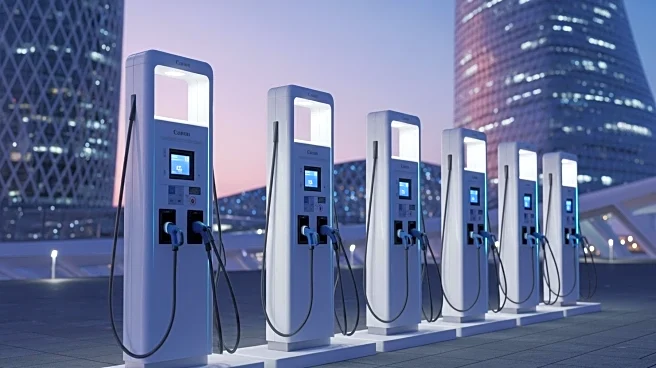What is the story about?
What's Happening?
The U.S. is experiencing a significant increase in electric vehicle (EV) sales as the deadline for federal tax credits approaches. The Republican tax and spending package passed in early July has accelerated the end of these credits, which offer up to $7,500 for new EVs and $4,000 for used ones. Buyers must have a binding contract by September 30 to qualify, leading to a rush in purchases. According to industry experts, this surge is driven by the impending loss of financial incentives, with EV sales in the third quarter expected to rise significantly compared to previous periods.
Why It's Important?
The surge in EV sales highlights the impact of government incentives on consumer behavior and the auto industry. The end of tax credits could slow future sales, affecting automakers' strategies and the broader push for electric mobility. This development underscores the importance of policy in driving the transition to cleaner energy vehicles. Automakers may face challenges in maintaining sales momentum without these incentives, potentially affecting their investment in EV technology and infrastructure.
What's Next?
As the tax credit deadline passes, the auto industry will closely monitor consumer demand for EVs without financial incentives. Automakers may need to adjust pricing strategies or enhance vehicle features to maintain competitiveness. The industry will also watch for potential policy changes that could reintroduce or modify incentives to support EV adoption. The outcome will influence the pace of the U.S. transition to electric vehicles and the industry's alignment with environmental goals.
















